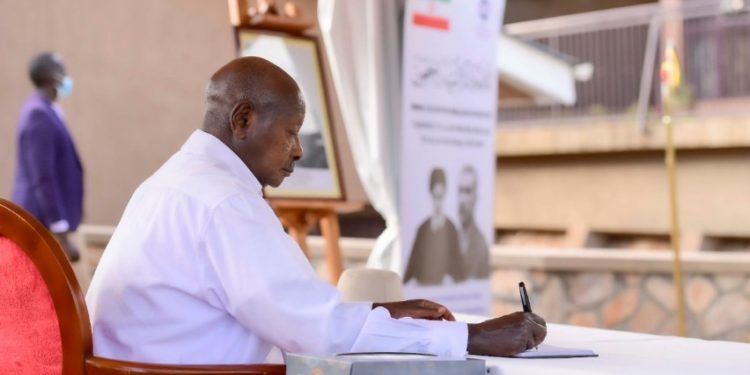When President Yoweri Museveni introduced Universal Primary Education (UPE) in 1997 and later Universal Secondary Education (USE), he had one primary goal: to ensure that every Ugandan child, regardless of background or economic status, had access to quality education. These initiatives were a direct response to the glaring inequalities that existed in the education sector, where many children, especially in rural and impoverished areas, were left behind. Museveni’s intention was noble, focusing on transforming Uganda’s future by empowering the youth through education.
However, this well-meaning vision has been severely undermined by a lack of patriotism among some teachers, especially those tasked with leading these schools. These teachers, instead of nurturing the young minds entrusted to them, have become one of the deadliest threats to Uganda’s future. Their unpatriotic actions have sabotaged the efforts of the government, betraying not only the nation’s future but also the trust placed in them.
A glaring issue is the tendency of headteachers to inflate the number of learners in their schools. The government provides capitation grants based on student enrollment, and some unscrupulous headteachers take advantage of this by manipulating the figures to receive more funds than they deserve. This not only defrauds the government but also robs the students of the quality education they deserve. These funds, meant to enhance the learning environment, end up lining the pockets of greedy individuals. Such teachers are not just undermining education; they are betraying the entire country by denying students the opportunity to benefit from the government’s investments.
Even more concerning is the continued practice of some headteachers extorting money from parents, charging illegal fees in UPE and USE schools. This is despite President Museveni’s repeated insistence that such practices are wrong and unacceptable. By imposing fees, these headteachers not only burden struggling parents but also undermine the very foundation of UPE and USE, which were designed to provide free education. This extortion prevents many children from accessing education and perpetuates inequality, going directly against the President’s vision of a nation where education is a right for all. Such headteachers are not only violating government policy, but they are also betraying the trust of the communities they are supposed to serve.
School inspectors, too, have become complicit in this betrayal. Their role is to ensure that schools are operating effectively, that teachers are attending to their duties, and that the government’s vision for education is being realized. Yet, many inspectors have abandoned their responsibilities. Some even go as far as demanding transport money from headteachers before inspecting schools. This blatant corruption not only destroys the oversight needed to keep schools in check but also sends a clear message that accountability has no place in Uganda’s education system. These inspectors, who are supposed to be the watchdogs of quality education, have themselves become part of the problem.
Equally disappointing are teachers who have adopted a lackadaisical attitude toward their responsibilities. Instead of being in classrooms, imparting knowledge, and shaping the future of Uganda, they abscond from duty, show up late, and spend most of their time in staff rooms. Many have become more passionate about European football than the success of their students, leaving learners to fend for themselves. This apathy has created a generation of students who are being deprived of the education they are entitled to.
Even more disturbing is the fact that these teachers continually demand salary enhancements while failing to provide value for the money already paid to them. The government, despite its limited resources, has continued to prioritize teachers’ welfare, providing salaries and benefits. Yet, many teachers act as if this is their entitlement without any corresponding sense of responsibility. Instead of focusing on delivering quality education, they are more interested in their personal financial gain. This selfishness further erodes the public trust and taints the image of teachers as noble contributors to national development.
These teachers, through their actions, have positioned themselves as the biggest silent betrayers and enemies of the government. Their behavior goes beyond mere negligence—it is a deliberate attempt to undermine President Museveni’s vision for Uganda’s future. By sabotaging education, they are indirectly contributing to the destabilization of the country. A poorly educated population is one that is easily manipulated, and these unpatriotic teachers are creating the conditions for future instability.
It is crucial that the government takes immediate and decisive action against such teachers and school inspectors. A nation’s future lies in the hands of its young people, and these educators are responsible for shaping that future. If they fail, the nation fails. These silent betrayers must be held accountable, and Uganda must renew its commitment to ensuring that every child receives the quality education they deserve, free from the shackles of corruption and incompetence.
Only by addressing these issues head-on can President Museveni’s vision of a truly educated and empowered Uganda become a reality. Teachers must remember that they are not just employees of the state—they are custodians of the nation’s future. Those who forget this responsibility are, in essence, enemies of Uganda’s progress.
The author, Trevor Solomon Baleke is a Deputy RDC.
+256 752 009 014















